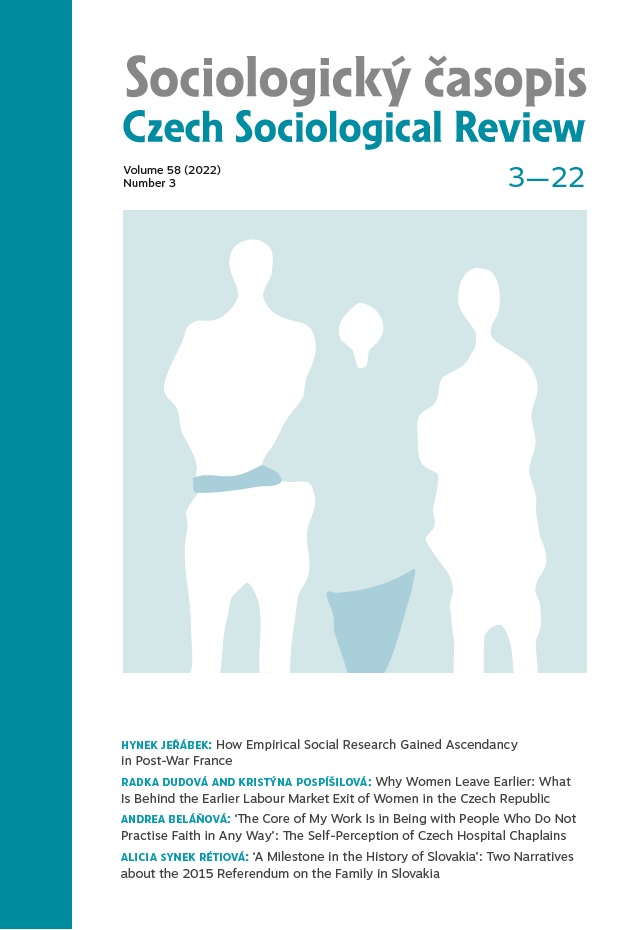How Empirical Social Research Gained Ascendancy in Post-War France
How Empirical Social Research Gained Ascendancy in Post-War France
Author(s): Hynek JeřábekSubject(s): Sociology, Methodology and research technology
Published by: AV ČR - Akademie věd České republiky - Sociologický ústav
Keywords: France; Paul Lazarsfeld; Raymond Boudon; Sorbonne; methodology of empirical social research
Summary/Abstract: Sociology changed significantly in Europe after the Second World War. An interest in research with practical applications began to prevail. This article explains how this transformation came about in France and what contributed to the change. Sociologists at the Sorbonne were the first to actively support the use of an empirical approach in the social sciences. In this connection they invited Paul Lazarsfeld, one of the founders of the Columbia school of sociology, to spend a year at the Sorbonne in 1962. Drawing on archive sources, this article reveals the factors that lay behind the creation of an original three-volume anthology of methodological writings that was the outcome of collaboration between Lazarsfeld and Raymond Boudon. They compiled this anthology in French with the aim of promoting this new research paradigm among social scientists in France. The article examines the structure of this French methodology textbook, analyses the thematic orientation of the articles, and notes different works that were jointly authored by French and American scholars. On a second sabbatical at the Sorbonne in 1967, Lazarsfeld followed up on this publishing activity and further pursued his primary interest – the methodology of data analysis.
Journal: Sociologický časopis / Czech Sociological Review
- Issue Year: 58/2022
- Issue No: 3
- Page Range: 235-255
- Page Count: 21
- Language: English

